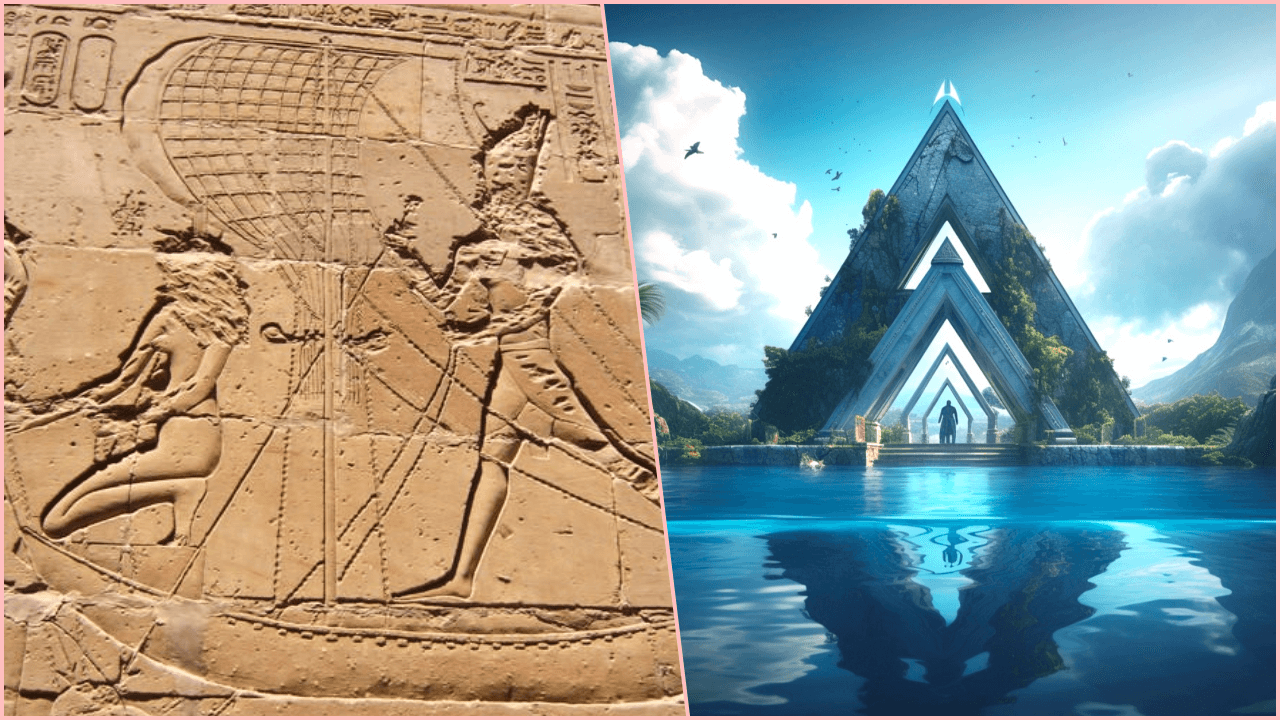BY THE ARCHAEOLOGIST EDITOR GROUP
Does the Edfu Text at the Horus Temple in Egypt Confirm Plato's Account of Ancient Atlantis?
Introduction to the Edfu Texts
The Edfu texts, inscribed on the walls of the Temple of Horus at Edfu in Egypt, are one of the richest sources of Egyptian mythology and have been interpreted by some as containing echoes of historical events. These inscriptions include what some scholars refer to as the "Building Texts," which describe the foundation of the temple itself and the mythical origins of temples in Egypt. They tell of a primeval time when gods ruled the earth and of a sacred island where the first temple ever built emerged from the primordial waters.
Plato’s Atlantis: A Philosophical Tale or Historical Account?
Plato's account of Atlantis, detailed in his dialogues "Timaeus" and "Critias," describes a sophisticated island civilization that existed 9,000 years before his own time and eventually fell out of favor with the deities, leading to its destruction in a great cataclysm. According to Plato, Atlantis was a naval power that lay "in front of the Pillars of Hercules" and conquered many parts of Western Europe and Africa 9,000 years before the time of Solon, or approximately 11,600 years ago. Following a failed invasion of Athens, Atlantis sank into the ocean "in a single day and night of misfortune."
Comparative Mythology: Universal Archetypes or Specific Histories?
Comparing the Edfu texts to Plato’s Atlantis narrative, there are thematic overlaps that have excited the imagination of some researchers and historians. The Edfu Building Texts speak of a "homeland of the primeval ones" that was destroyed by a disaster. This homeland was said to be an island, similar to Plato’s Atlantis, and there are references to a great flood that seems to have engulfed this primeval place.
However, any direct corroboration between the Edfu texts and Plato's account is tenuous and speculative. The Edfu Building Texts do not explicitly describe an advanced civilization like Atlantis, nor do they mention a continent beyond the "Pillars of Hercules" or provide a timeline that matches Plato's narrative. The descriptions of the destruction and great flood in the Edfu texts are also notably mythological, typical of creation myths around the world, which often include cataclysmic floods and other disasters.
The idea of a flood or divine cataclysm is a common motif in many ancient cultures, found in narratives ranging from the Biblical story of Noah's Ark to the Sumerian Epic of Gilgamesh. While such stories may be rooted in real events—such as local floods or other natural disasters—they are often mythologized and do not serve as reliable historical accounts.
Concluding Reflections: The Enduring Enigma of Atlantis in the Light of Edfu
In conclusion, while there are thematic similarities between the Edfu texts and Plato’s story of Atlantis, particularly in the motifs of destruction and water, there is no concrete evidence to suggest that the Edfu texts corroborate the existence of Atlantis as a historical reality. The texts from Edfu are valuable for understanding ancient Egyptian mythology and religious beliefs but should be interpreted with caution when used as sources for historical events. The search for Atlantis, as described by Plato, remains a topic of speculation and debate among scholars, with no universally accepted historical or archaeological evidence to confirm its existence.









